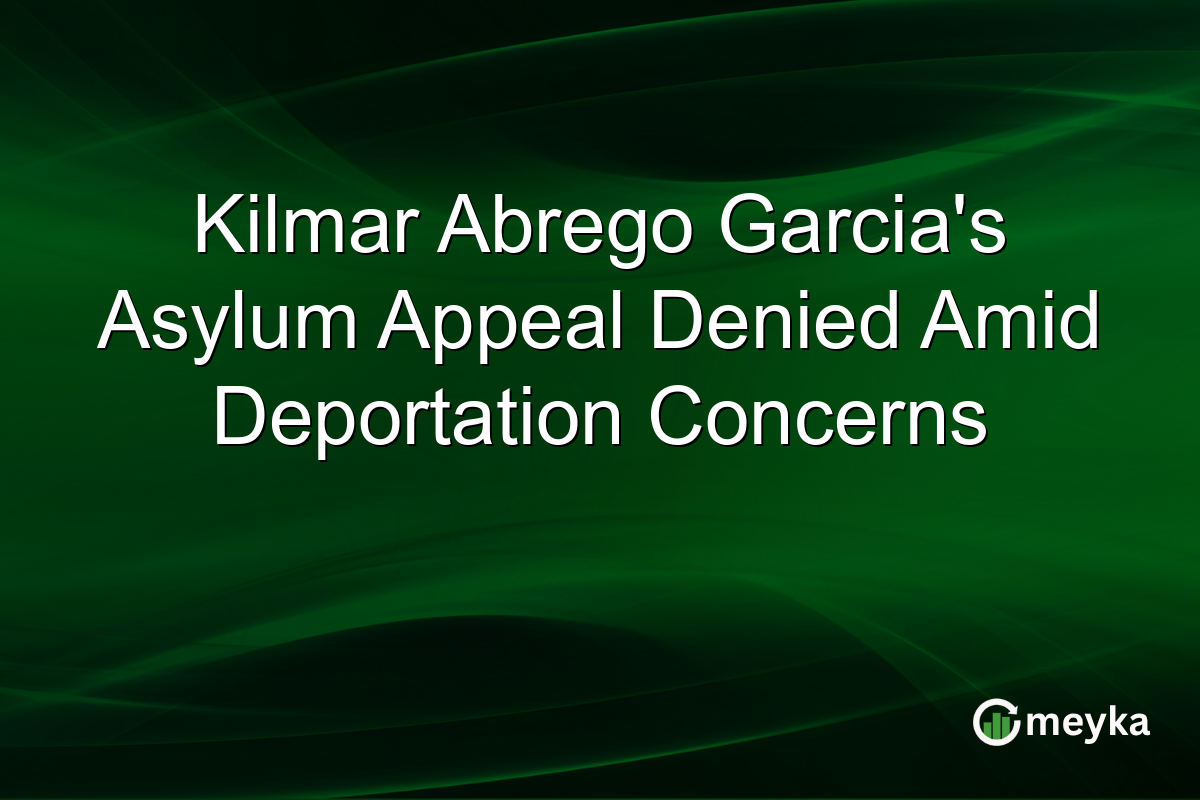Kilmar Abrego Garcia’s Asylum Appeal Denied Amid Deportation Concerns
Kilmar Abrego Garcia’s attempt to secure asylum in the U.S. faced a setback when a Baltimore immigration judge refused to reopen his 2019 case. This decision has stirred significant concern due to the looming threat of deportation, a pressing issue in current U.S. immigration debates. With only 30 days to appeal, this case highlights ongoing challenges within the immigration system.
The Ruling and Its Implications
The recent ruling on Kilmar Abrego Garcia’s asylum appeal is more than a personal setback; it’s a reflection of tight immigration controls. The U.S. immigration judge in Baltimore determined that his case lacked sufficient grounds to be reopened. This shows how the process underscores rigorous legal standards. With a 30-day window to appeal, Garcia faces uncertainty about his future. The decision amplifies concerns about deportation proceedings, particularly for individuals like Garcia, who have lived in the U.S. while their legal status remains unresolved. Such cases often highlight the complexities of asylum laws and their enforcement.
Wider Impact on Immigration Policies
This case occurs amid a broader national discussion on immigration policies under the current administration. Recent statistics indicate that asylum denial rates have reached over 70% in certain jurisdictions as courts aim to manage backlogs. Garcia’s situation mirrors the experiences of many who find themselves entangled in deportation proceedings. It raises questions about how immigration policies balance national security concerns with humanitarian obligations. The ruling can also influence future court decisions and potentially sways public opinion, shaping future legislative actions and reforms.
Legal Options and Next Steps
Following the denial of reopening his asylum case, Garcia’s focus shifts to filing an appeal. Legal experts assert that appealing a judge’s decision requires demonstrating error in the application of the law or presenting new, compelling evidence. It’s a challenging path, but for Garcia, it offers a crucial lifeline. His legal team is likely considering all possible avenues, including potentially taking his case to higher appellate courts. This development emphasizes the importance of skilled legal assistance and understanding complex immigration statutes.
Public and Political Reactions
Garcia’s case has not gone unnoticed. Immigration advocacy groups are vocal about their concerns regarding the fairness of proceedings like his. They argue that such rulings reflect a need for more compassionate immigration law reforms. Public sentiments are often mixed, with some advocating for stricter legal frameworks while others push for humane approaches. Citizens and observers discuss these issues extensively across social media platforms, highlighting the emotional and political charge surrounding immigration laws. Read more about the ruling here.
Final Thoughts
Kilmar Abrego Garcia’s case highlights the intense scrutiny and complexity of asylum applications in the U.S. The recent denial to reopen his case showcases not only an individual’s legal struggles but also reflects broader systemic issues within immigration policies. As his appeal deadline approaches, this situation will likely continue to spark discussions on how current laws serve the people they impact. For stakeholders, including policymakers and legal advocates, the outcome of Garcia’s appeal could serve as a critical benchmark in shaping future reforms in immigration.
FAQs
The immigration judge in Baltimore refused to reopen the case due to insufficient grounds. This decision highlights the stringent criteria used in asylum cases.
Garcia can file an appeal within 30 days. His legal team needs to show legal errors in the initial ruling or present new evidence to succeed in higher courts.
Garcia’s case spotlights issues in current immigration systems, fueling discussions on balancing security with compassionate asylum processes amidst high denial rates.
Disclaimer:
This is for information only, not financial advice. Always do your research.






